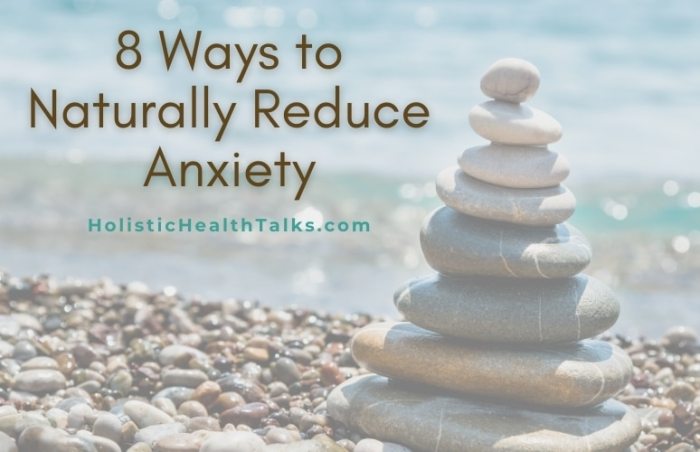
Overcoming health anxiety naturally sets the stage for this enthralling narrative, offering readers a glimpse into a story that is rich in detail and brimming with originality from the outset.
This journey delves into the intricacies of health anxiety, exploring its symptoms, emotional roots, and everyday impacts. By harnessing natural methods, nutrition, and support systems, individuals can find effective ways to navigate their anxiety, enhancing their overall well-being and quality of life.
Understanding Health Anxiety
Health anxiety, often referred to as hypochondria, is a condition characterized by an excessive preoccupation with health concerns. Individuals with health anxiety are often consumed by fears of having a serious illness, despite having little or no medical evidence to support such fears. Symptoms can manifest in various ways, including persistent worry about health, frequent checking of body symptoms, and avoidance of medical care due to fear of receiving bad news.Several psychological and emotional factors contribute to health anxiety.
These can include past traumatic health experiences, a family history of anxiety disorders, or even cultural beliefs about illness and health. The impact of health anxiety on daily life can be profound, leading to significant distress and impairing one’s ability to function socially and professionally. The constant fear and worry can drain emotional energy, leaving individuals feeling exhausted and overwhelmed.
Natural Methods to Overcome Health Anxiety
To manage health anxiety naturally, various remedies and techniques can be beneficial. These approaches focus on reducing stress and promoting relaxation, which can help alleviate anxious thoughts and feelings.
- Engaging in regular physical activity, which has been shown to improve mental health.
- Practicing deep breathing exercises or yoga to help calm the mind.
- Utilizing mindfulness meditation to stay present and reduce negative thinking.
Additionally, certain herbal supplements may provide relief from anxiety symptoms. Examples include chamomile, valerian root, and lavender, which are recognized for their calming properties. Always consult a healthcare professional before beginning any new supplement regimen.
The Role of Nutrition in Health Anxiety

Diet plays a significant role in mental health, including the management of anxiety. A well-balanced diet can provide the nutrients necessary for optimal brain function and mood regulation. Healthy foods that promote mental well-being include:
- Leafy greens, rich in vitamins and minerals.
- Fatty fish, high in omega-3 fatty acids.
- Nuts and seeds, which provide healthy fats and antioxidants.
- Whole grains, known for their ability to stabilize blood sugar levels.
Balanced nutrition not only supports physical health but also helps the body cope with anxiety, creating a more resilient mental state.
Home Health Care Strategies
Utilizing home health care services can be an effective way to manage health anxiety. Having a healthcare assistant can provide emotional support, helping individuals feel more secure about their health concerns. Benefits of having a health care assistant include:
- Regular check-ins to discuss health anxieties and concerns.
- Assistance in meal preparation, ensuring a healthy diet.
- Guidance in establishing routines that promote mental health.
Incorporating healthy routines at home, such as setting aside time for relaxation and self-care, can significantly reduce anxiety levels.
Health and Fitness as a Coping Mechanism
Physical activity is crucial in reducing health anxiety. Exercise releases endorphins, the body’s natural mood lifters, which can improve overall mental health. A structured workout plan can cater to varying fitness levels:
- Beginner: 20 minutes of walking or light yoga.
- Intermediate: 30 minutes of cycling or swimming.
- Advanced: 45 minutes of high-intensity interval training (HIIT).
Specific exercises known to promote mental health stability include aerobic exercises, strength training, and flexibility workouts such as Pilates.
Community and Support Systems

Healthcare alliances and support groups play a vital role in managing health anxiety. Engaging with peers who face similar challenges can provide comfort and validation.Ways to connect with others include:
- Joining local support groups focused on anxiety management.
- Participating in online forums or social media groups.
- Attending workshops on mental health awareness.
The importance of social connections cannot be overstated; sharing experiences and strategies can foster a sense of belonging and reduce feelings of isolation.
Health Equity and Access to Resources
Health equity significantly affects individuals experiencing health anxiety. Disparities in access to mental health resources can exacerbate feelings of anxiety and isolation. Barriers to accessing mental health support may include:
- Financial constraints, limiting access to therapy and counseling.
- Lack of transportation to health care facilities.
- Cultural stigmas surrounding mental health issues.
Healthcare systems have a critical role in providing equitable care, ensuring that all individuals can access necessary resources without discrimination.
Educational Resources for Health and Medical Sciences
Health education is essential in understanding anxiety and its management. Educational resources empower individuals to make informed decisions about their mental health.Reputable sources for learning about mental health include:
- National Institute of Mental Health (NIMH)
- Mental Health Foundation
- American Psychological Association (APA)
Additionally, various health and medical education programs available to the public can enhance knowledge and promote better coping strategies.
Health and Beauty as Part of Self-Care
Personal care routines can significantly impact mental health. Engaging in health and beauty practices promotes well-being and self-esteem.Examples of health and beauty products that foster well-being include:
- Aromatherapy oils that help reduce stress.
- Skin care products with calming ingredients like aloe vera.
- Bath products infused with essential oils for relaxation.
Creating a self-care checklist that incorporates health-related beauty tips can help individuals establish a routine that nurtures both body and mind.
Health Tips and Preventative Measures
Adopting health tips aimed at reducing anxiety can make a significant difference. Comprehensive health tips include:
- Regularly engaging in physical activity to boost mood.
- Practicing mindfulness and meditation techniques.
- Maintaining open communication with healthcare providers.
Preventative measures, such as regular health diagnostics and check-ups, are crucial for early detection and management of potential health issues, helping to alleviate anxiety associated with uncertainty.
Wrap-Up
In summary, embracing natural strategies to overcome health anxiety not only fosters personal growth but also cultivates healthier relationships with ourselves and others. By integrating mindful practices, nutritious choices, and supportive communities, we can effectively manage anxiety and lead more balanced lives.
Essential Questionnaire
What are some common symptoms of health anxiety?
Common symptoms include excessive worry about health, frequent checking for signs of illness, and avoidance of situations that trigger anxiety.
Can lifestyle changes really impact health anxiety?
Yes, making lifestyle changes such as increasing physical activity and improving nutrition can significantly reduce anxiety symptoms.
How can I support a friend struggling with health anxiety?
Offer a listening ear, encourage them to seek professional help, and suggest activities that promote relaxation and mindfulness.
Are there any specific foods that help with anxiety?
Foods rich in omega-3 fatty acids, antioxidants, and whole grains are known to support mental health and reduce anxiety.
What role does exercise play in managing health anxiety?
Exercise releases endorphins, which are natural mood boosters, helping to alleviate anxiety and improve overall mental health.






